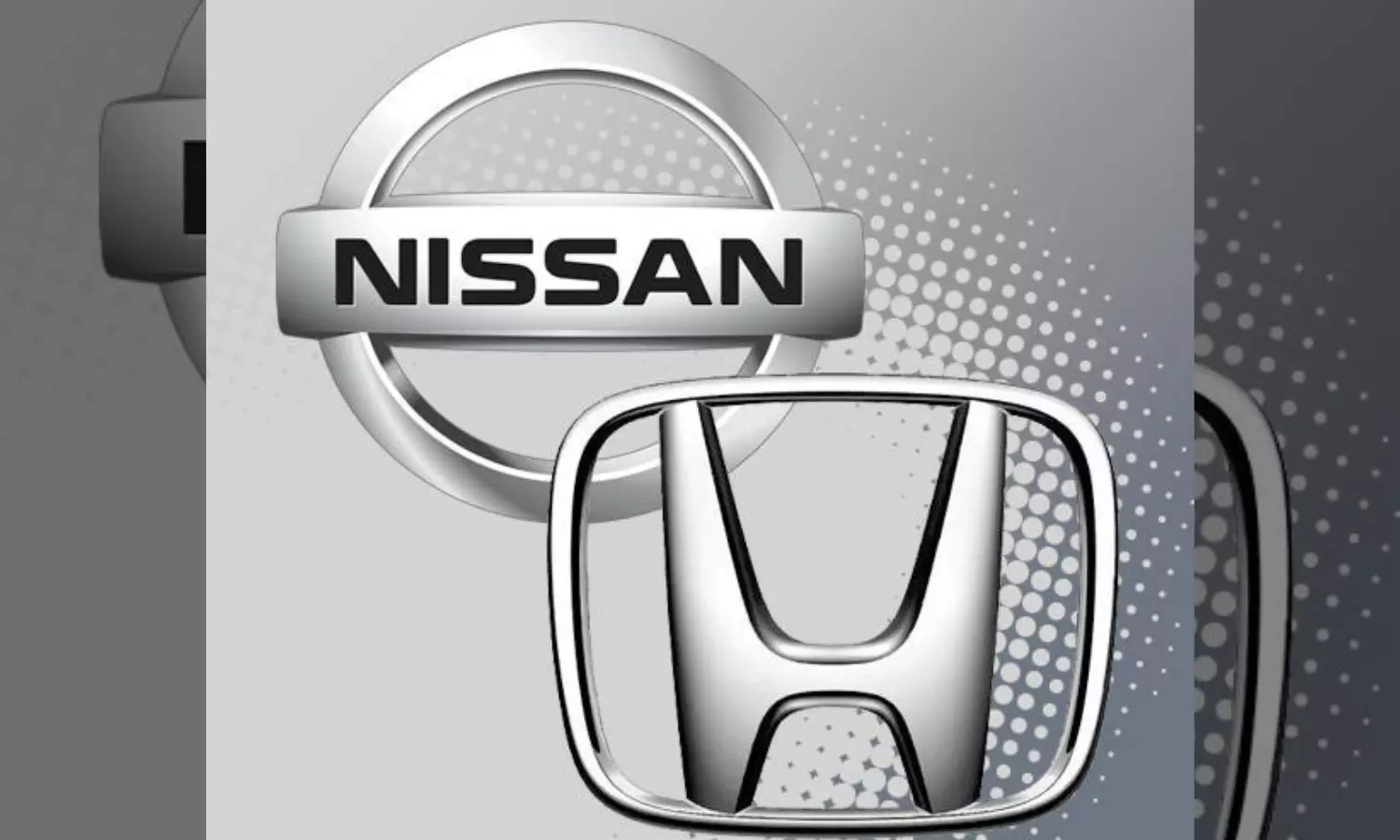
Tokyo: Japanese automakers Honda and Nissan have announced plans to work toward a merger, the world’s third-largest automaker by sales as the industry undergoes dramatic changes in its transition away from fossil fuels.
The two companies said Monday that they signed a memorandum of understanding and that smaller Nissan alliance member Mitsubishi Motors also agreed to join talks on integrating their businesses.
Honda President Toshihiro Mibe said Honda and Nissan will pursue integrating their operations under a joint holding company. Honda will initially lead new management while maintaining each company’s philosophy and brand. He said the goal is to enter into a formal merger agreement and finalize the deal by June, and to list the holding company on the Tokyo Stock Exchange by August 2026.
No dollar price has been given and formal negotiations have just begun, Maibe said.
There are “points that need to be studied and discussed,” he said. “Frankly, the chances of it not being implemented are non-zero.”
Japan’s automakers have lagged behind their larger rivals in electric vehicles and are scrambling to cut costs and make up for lost time.
A merger could result in a behemoth worth more than $50 billion based on the market capitalization of all three automakers. Together, Honda, Nissan and Mitsubishi will gain scale to compete with Toyota Motor Corp. and Germany’s Volkswagen AG. Toyota has technology partnerships with Japan’s Mazda Motor Corporation and Subaru Corporation.
News of a potential merger emerged earlier this month, with talks for an unconfirmed collaboration said to be partly prompted by Taiwanese iPhone maker Foxconn’s aspirations to strike a deal with Nissan by buying a stake in the Japanese company’s other alliance partner, France’s Renault SA. .
Nissan CEO Makoto Uchida said there was no direct approach to his company from Foxconn. He also acknowledged that Nissan’s situation was “serious”.
Toyota, which will turn out 11.5 million vehicles in 2023, will remain Japan’s leading automaker even after the merger. If they join, the three smaller companies will make about 8 million vehicles. In 2023, Honda produced 4 million and Nissan 3.4 million. Mitsubishi Motors alone earned over 1 million.
Nissan, Honda, and Mitsubishi announced in August that they would jointly research electric vehicles such as batteries and software for autonomous driving to better adapt to dramatic changes centered around electrification, following an initial agreement between Nissan and Honda in March.
Nissan has struggled since a scandal erupted after its former chairman Carlos Ghosn was arrested in late 2018 on charges of fraud and misappropriation of company assets, charges he denies. He was eventually released on bail and fled to Lebanon.
Speaking to reporters in Tokyo via a video link on Monday, Ghosn derided the planned merger as a “desperate move”.
From Nissan, Honda could get truck-based body-on-frame large SUVs like the Armada and Infiniti QX80 that Honda doesn’t have, with bigger towing capacity and better off-road performance, Sam Fiorani, vice president of AutoForecast Solutions, told The Associated Press.
Nissan also has years of experience building battery electric vehicles and gas-electric hybrid powertrains that could help Honda develop its own EVs and the next generation of hybrids, he said.
But the company said in November it would cut 9,000 jobs, or about 6 percent of its global workforce, and 20 percent of its global production capacity after reporting a quarterly loss of 9.3 billion yen ($61 million).
It recently reshuffled its management and its chief executive Makoto Uchida took a $50 pay cut to take charge of financial problems, saying Nissan needed to become more efficient and respond better to market tastes, rising costs and other global changes.
“We expect that if this integration is successful, we will be able to provide even greater value to a broader customer base,” Uchida said.
Fitch Ratings recently downgraded Nissan’s credit outlook to “negative,” citing declining profits due to price cuts in the North American market. However, it noted that it has a strong financial structure and solid cash reserves that amount to 1.44 trillion yen ($9.4 billion).
Nissan’s share price has also fallen where it is believed to be a deal.
On Monday, its Tokyo-traded shares rose 1.6 percent. They jumped more than 20 percent last week on news of a potential merger.
Honda shares rose by 3.8 percent. Honda’s net profit fell nearly 20 percent in the April-March first half of the fiscal year from a year earlier as sales in China were hit.
The merger reflects an industry-wide trend toward consolidation.
At a regular briefing Monday, Cabinet Secretary Yoshimasa Hayashi said he would not comment on the details of the automakers’ plans, but said Japanese companies needed to remain competitive in a rapidly changing market.
“As the business environment around the automobile industry changes drastically, competitiveness in storage batteries and software is increasingly important, we expect the measures necessary to survive in international competition will be taken,” Hayashi said.